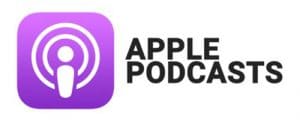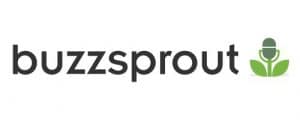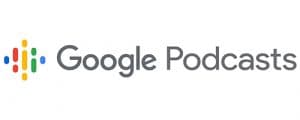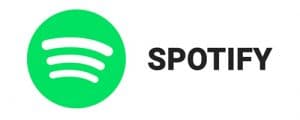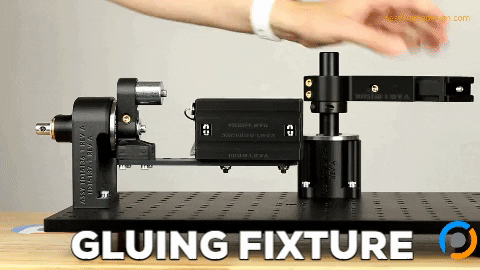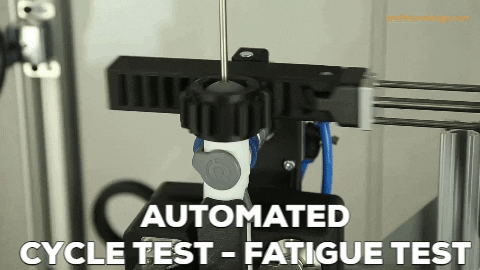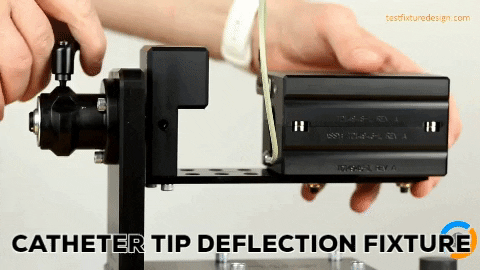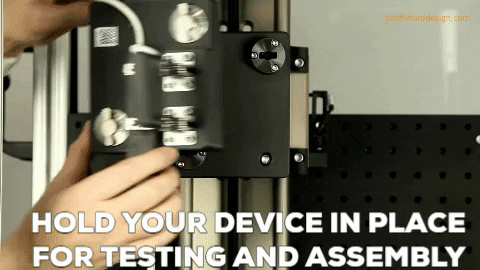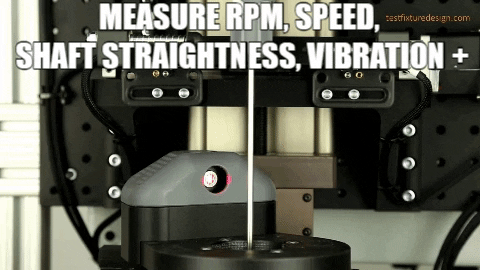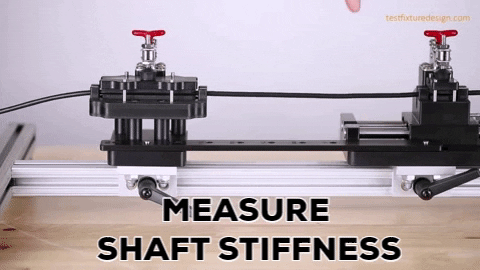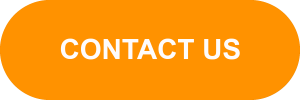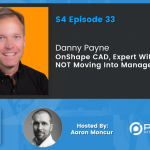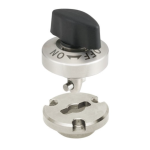S4E32 Brooke McDonald | R&D Engineering Series – Interview 6 of 6
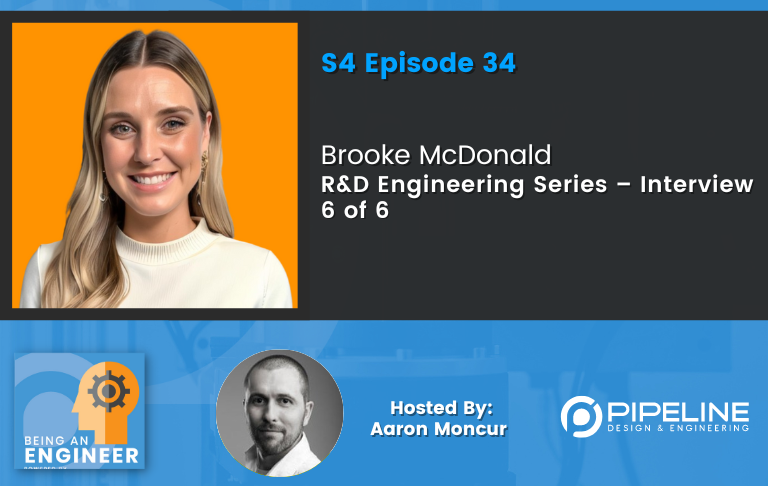
Who is Brooke McDonald?
Brooke McDonald holds a Bachelor’s degree in biomedical engineering and has deep experience in medical device reprocessing as well as in developing new medical devices. Brooke currently works as a staff research and development engineer on novel approaches to combating brain tumors.
EXPAND TO VIEW EPISODE TRANSCRIPTION
SUMMARY KEYWORDS
r&d, engineer, product, engineering, testing, space, working, understanding, brooke, design, developing, stryker, types, failures, medical, problem, customers, medical device, learn, biomedical engineering
SPEAKERS
Brooke McDonald, Presenter, Aaron Moncur
Presenter 00:00
Hi everyone. We’ve set up this being an engineer podcast as an industry knowledge repository, if you will, we hope it’ll be a tool where engineers can learn about and connect with other companies, technologies, people, resources and opportunities. So make some connections and enjoy the show.
Brooke McDonald 00:18
Being, I guess supportive of trial and error and failures is something that encourages someone to keep trying again keep finding an innovative solution, and not being afraid to fail.
Aaron Moncur 00:47
Hello, and welcome to another exciting episode of The being an engineer podcast. We’re speaking with Brooke McDonald today, and this is episode six out of six in our r&d series, Brooke holds a Bachelor’s degree in Biomedical Engineering and has deep experience in medical device reprocessing as well as in developing new medical devices. Brooke currently works as a staff research and development engineer on novel approaches to combating brain tumors. Brooke, thanks so much for being on the show today.
Brooke McDonald 01:20
Thanks, Aaron. Excited to be here. My This is my first podcast experience though. Super excited to share it with the pipeline group.
Aaron Moncur 01:29
Awesome. Love it. Love it. All right, well, what made you decide to become an engineer?
Brooke McDonald 01:36
Yeah, so I growing up, and especially in high school was really good at math, science, always liked solving problems, would characterize myself as creative. But I think what really drove me to become an engineer was influence from my mom. So she is one out of 10 kids. And nine out of her 10 siblings. Were all engineers. Wow. Ironically, he studied art. But yeah, actually, she didn’t influence I think me, my sister and my brother all to consider an education in engineering. And she’s really proud now to say that all three of her children are all engineers.
Aaron Moncur 02:25
Who can Wow, amazing Well, yeah, engineering, the your brother and sister do
Brooke McDonald 02:30
Civil engineering and industrial engineering. And then across our family, gosh, there’s pretty much everything mechanical, electrical. Someone’s in the fire. Safety realms, though, got a broad and had a broad, you know, different industry types to look at whenever I was kind of deciding what type of engineer I wanted to be to.
Aaron Moncur 02:57
That’s pretty incredible. On your mom’s side. Nine of them are engineers. Yep. Yeah. And first of all, that’s a huge family. And incredible that nine of them became engineers. Yeah. Yeah. So it’s basically in your DNA.
Brooke McDonald 03:14
It is it is. I didn’t know I wanted to get into biomedical engineering, I bet. And it kind of worked out. So I went to the University of Arkansas. And the first semester of any type of engineering is just general engineering. So everybody goes in, you learn about the different types of per semester, and then you choose your specialty. And when that time came around, ironically, at the same time, they had introduced a new biomedical engineering program. So it kind of seemed like Speight had aligned in terms of timing. So I dove into the biomedical realm, I think, yeah, for me, having the opportunity to you know, work on medical devices and patient care and having the ability to potentially save lives that was really exciting and kind of knew that that was the path for me.
Aaron Moncur 04:13
Totally. Yeah, I, I wish that the first semester in college, for me had been kind of a broad general here, all the different kinds of engineering, we didn’t really have that I signed up for manufacturing engineering, initially, actually. And then that that program ended up getting cancelled. And so mechanical engineering was kind of like the default where they shuttled all of us off to, which turned out to be a really great fit. And I’m glad that happened, actually, technical for me is better than the manufacturing. Well, you’re you’re an r&d engineer right now. And you do you think of yourself like specifically as an r&d engineer, or just more generally, as an engineer, or more specifically as like a biomedical engineer Yeah.
Brooke McDonald 05:01
Yeah, so in Biomedical Engineering, they really taught us a broad range of all types of engineering, see how a little bit of mechanical, a little bit of electrical, you know, they woven biology and medicine to kind of the jack of all trades, you had a broad range of background skills. So because of that, I think I would think of myself more as an engineer, rather than an r&d specific engineer. But I have found that my passion really lies within r&d. Though, throughout my career, I’ve been in the medical device engineering realm for about eight years, a little over eight years, seven of those eight years, were all in r&d. I did step outside of my comfort zone and try operations or manufacturing engineer for a year. And then quickly jump back into to r&d, though, I found that that’s really what I’m most passionate about. I’m both engaged, I have the most dry
Aaron Moncur 06:07
when when you learn that manufacturing engineering wasn’t really the right fit for you. What was it about manufacturing that that you didn’t like? Or maybe what was it about r&d That you were missing there that took you back to r&d?
Brooke McDonald 06:22
Yeah, so my roles in r&d have been pretty unique, I’d say, I think within r&d, you can take really a lot of different paths. And my work primarily has focused on more of the upfront space, though, working directly with customers, surgeons, clinicians trying to understand what their needs are, and then translating those into design input. So with my biomedical background, I think I excel more in this upfront space, doing the exploratory research needs finding, again, trying to figure out how to translate what people are describing into a design, and really having a piece of that innovation or being able to learn innovation. So I think that’s what I missed when I jumped over to manufacturing and operations. And I see, yeah, studying biomedical kind of gave me the ability to be able to transition into a role like manufacturing, and, you know, translate the skills that I have in r&d or biomedical background into the ability to create manufacturing processes. But again, was missing that customer interaction piece.
Aaron Moncur 07:46
Yeah, totally. Well, during your career in r&d, what what have been some of the most common challenges that you seem to run into, like, over and over? Are there patterns that have emerged over the years,
Brooke McDonald 08:01
I see. Biggest thing that comes to mind is just iterations and accepting failures. Within r&d, your you know, it’s really especially in the upper end space, before you’re actually moving a product through the product development process. And I’m primarily talking about, you know, the medical device product development process here. But before you hit go, there’s a lot of trial and errors, a lot of failures in iteration pop up. Your constant constantly experimenting, or creating new prototype, testing them out, and not just, you know, the the nature of r&d itself. So one of the challenges you run into are just, you know, setbacks, things you are expecting failures that you have to learn from, and then just iterating your product or your design into a new idea that, you know, better geared up to not fail compared to what you had before. So I think failures are common unexpected in r&d. But you always figure it out in the end, which is exciting.
Aaron Moncur 09:19
You know, I think that’s one of the great things about r&d is there are so many failures, as engineers, I think that we’re programmed to really love solid solving problems. And r&d just presents us with with so many problems to solve, right it if, if it works perfectly the first time all the time, it might actually get kind of boring, because there aren’t enough problems to solve. So, yeah, he’s really cool in that that aspect.
Brooke McDonald 09:51
Yeah, as actually, as I’m thinking about that question. I Googled how many planes did the Wright Brothers As you know, create before they successfully flew the first airplane. And I couldn’t get an exact answer, but it did say that they, you know, iterated products for several years before they flew for the first time, though. Yeah. motivation to keep going and medical device iteration
Aaron Moncur 10:19
and and make that that moment of success that much sweeter right when you’ve had all these failures? And then finally, ah, we got it, we figured it out what a great feeling that is. Yeah, exactly. So you’ve maybe talked about this a little bit already. But let me ask the question, specifically, what do you think your role is, as an r&d engineer? Like, what, what does that title mean? What is? What’s the objective of an r&d engineer?
Brooke McDonald 10:48
So I’ll answer this in terms of my specific experiences and where I’ve landed in r&d, I think my job is to really understand what a customer needs and then be able to work cross functionally, to translate that into a design. So I think a lot of times, and I think we see this across probably a lot of industries. But there’s companies that make products and bring them to customers. And at the end of the day, nobody buys them. Nobody does that. And I think that probably stems from not really understanding what the true need is, though, there’s a quote that we have at our office that’s posted on the wall near the r&d, engineering teams, workstations, and the quote goes, the worst design is a solution in search of a problem. So it kind of suggests that creating a design without a clear, you know, understanding of the problem that it’s trying to solve, or the need, that it addresses can really lead to something that maybe doesn’t have a purpose or, you know, is is an unnecessary solution. So I think r&d and specifically in the upfront and medical device space is making sure you really understand what it is that your customers, your surgeon, your clinicians don’t have, and then trying to translate that into something that solves that problem.
Aaron Moncur 12:27
Yeah. Which can be deceptively difficult, right? I mean, looking at it from the outside, you might ask, why would you ever solve a problem that doesn’t exist? Right? It seems so obvious. But in practice, it’s really tough to as engineers, we just want to jump in and build something, right. So to like, have the discipline to kind of sit back and okay, we really, truly do understand the problem. Now, let’s go ahead and start to build something takes. It takes some discipline, I think exactly. Yeah. What what are some of the tools that you find to be really helpful and that you’ve used regularly over the years in r&d?
Brooke McDonald 13:07
So for me, I primarily use research databases and literature, academic journals, technical publications, it’s all about, you know, staying updated with the latest developments, gathering information, and then really using these articles and publications to inform what we’re developing or how we’re testing it. So this is super helpful when we’re, you know, figuring out test methods for the first time. For example, in my current role, we have an implantable product that treats residual brain tumor cells after a tumor is removed. And we’re working on the next generation of that product. So one of the questions our customers asked us is, well, how does that product look after you implant it and then perform CT and MRI scans? This is the first time I’ve been in first the brain space, second, the oncology or cancer space. And then third, having dealt with any sort of like permanent implants and imaging, so I really had to start with, you know, educating myself all of these different spaces and, and avenues and then figuring out well, how do you test something in an MRI and CT scan? And what physical test, you know, configurations or fixtures are you able to put into these types of machines? So I rely pretty heavily on researching and really appreciate the other engineers who have published you know, some of their studies that I can learn from or leverage. And then I’d say kind of within that same realm Um, within medical, there’s a ton of standards that can be referenced whether it’s ISO standards, or ASTM, me. I think AMI is another one. There’s, there’s a bunch out there, but we try to keep everything as standardized as possible so that we’re doing things consistent. Where are you? You’re testing things consistently across different companies.
Aaron Moncur 15:23
Yeah, that’s great. How about activities that you perform that you wish could just be done way, way faster? And maybe there’s some that you don’t wish could be done faster? Because they’re the fun part that you really love doing. But is there anything out there that you just think to yourself, Man, I wish I wish this could be just performed like a magnitude of order faster than what we’re currently doing?
Brooke McDonald 15:48
Yeah, I’ll describe one that comes to mind and probably a nice shameless plug for pipeline, because I think this is where they’ve helped us in the past, especially when I worked at Stryker. But one of the things, again, from a medical test, our medical perspective, is the testing that we have to do. So while it’s really fun, and exciting, you know, early on to do proof of concept testing, and evaluating things from an initial perspective, with medical, when it comes to our final verification and validation testing, we have to test extremely high sample sizes. And naturally, because it’s critical to make sure that these products are safe and effective for patients, right, but sometimes we’re testing hundreds of products, over weeks, and even months, it can span just the amount of devices you have to go through. And then if you’re working on, you know, multiple products at a time, I think, one of my last products we were testing for probably for four months or so. So that’s definitely something that I think we could increase or improve. But you have to do so in such a way that you’re not, you know, affecting that, you know, Final Validation of those devices.
Aaron Moncur 17:16
Yeah. Thank you for the shameless plug. I’ll get you your payment center for the show, of course. No, it’s something that I think about as well. In fact, we’re speaking of shameless plugs. We’re working on a line of kind of modular test fixtures right now that hopefully make the r&d process much, much faster. Right now, pretty much all the work we do we develop custom fixtures and equipment for companies like where are you? Where are you working. And it takes a while right to develop something custom. So we’re working on a line of product that’s not custom that’s a little bit more generic, but can be customized are configured to do a wide range of different testing. So anyway, stay tuned for that everyone listening to the podcast that we hope to launch our first product later this year. Anyway, back to this podcast is about Brexit, not pipelines. So going back to broke what, what is what is one of your proudest accomplishments as an r&d engineer?
Brooke McDonald 18:24
Yeah. So in 2019, we had just launched a product. And this was when I worked at Stryker. So it was a reprocessed medical device. And this was probably my second time going through the entire product development process. So my second time launching a product and I actually sat as the lead r&d engineer on that product. So we were nominated for the strikers global r&d Award, Best New Product Category, which was very exciting as reprocessed product. We don’t typically, you know, Doc up as exciting or innovative as some of the other novel Stryker products. But we did that year, and we traveled to Chicago to go to the r&d summit. And they announced that we had won the award. So there were three winners of the category and we were one of them. So winning, that made me super proud, but I think it was more reflecting on the image of our team standing up on the stage, being handed the award that really hit home for me, there were 10 of us standing on the stage, and nine of them were male, and one with a female so that was me. So in a, you know, in a field that in the past has been predominantly you know, male dominated, it was really cool to be standing up there, as you know, the the one and only female engineer representing, you know, other women in the field. And I know every year, you know, more and more women are continuing to enter into the engineering field. So I know one day there will be more than one, you know, featuring Powell and nine male on that stage. But that was a really proud moment. We
Aaron Moncur 20:25
know what an amazing experience that must have been. Congratulations on that. Thank
Brooke McDonald 20:29
you.
Aaron Moncur 20:30
And you were project lead on that project as well. Right was
Brooke McDonald 20:34
Yeah, so it was, we had we manufactured it out in Florida, and then did most of the design and testing in Phoenix. So we had lead engineers across r&d, manufacturing, and quality. And then we really all partnered with the rest of the team marketing, regulatory, to really, you know, bring the product to market. So that was my first time being a lead r&d engineer. And then I held lead r&d engineering positions after that, so I must have done okay.
Aaron Moncur 21:11
I love that you brought that up. Because I think sometimes engineers get a bad rap as being like, all we want to do is like sit in our cube and pound away at our keyboard and like, we don’t like contact with other humans. But what was so meaningful for you was was this recognition and not in a prideful way at all, but just the fact that you got to be up there. As an engineer, and also representing women in engineering, that recognition, I think, is super important for us and probably goes, underappreciated, maybe even especially within the field of engineering, because there’s this like this kind of idea of, we don’t need to talk to other people. And we’re introverts and you know, all of that stuff. But anyway, I’m glad you brought that up. What, what’s something that you wish others would understand about r&d engineering, that, that maybe even other engineers who aren’t in the r&d space, or leadership maybe doesn’t fully appreciate?
Brooke McDonald 22:13
I’ll go back. And I know that there’s been my answer for a lot of things. But I think I’ll go back to understanding how important the clinical need is are understanding the patient needs, what the customer needs are, and how crucial it is that you let that guide you. I think a lot of times, we talked about this earlier, too, as as an engineer, sometimes you can get super excited about like the most technical product or, you know, something that really excites you this new innovation that nobody’s ever tried before. And maybe that’s not what you know, they the people need at the end of the day. So I think it’s kind of pulling yourself back and not, you know, diving too deep into what exactly it is that you think should be developed. It’s really understanding what do people need? What do customers need? What do patients need, especially within, within medical,
Aaron Moncur 23:16
I love that, within the space, the medical device space, specifically that it is a built in check for that there’s for verification, and there’s validation. And sometimes I get these big steps. So please correct me if I get it wrong, but verification is making sure that you design the product correct. And then validation is making sure you design the correct product exactly is the the product that actually meets meets the needs. So that’s one of the cool things that I’ve always appreciated about the medical device space that check ins is kind of already built into the process and and formally regulated by the FDA. So you’re you’re really forced to make sure you understand a problem, at least in theory, that’s how it should. Absolutely.
Brooke McDonald 23:55
And I’ve been on you know, I’ve worked on products before where we said, Yes, we designed the right product, we developed all these use, yeah, design inputs and acceptance criteria, we met all of our specifications. And then we brought the final product to the customer. And there were a variety of different things that we hadn’t thought about that were important to them. So we had to go back to the drawing board, though it really shows how important it is to you know, be having those conversations upfront and early and, you know, taking prototypes to your customers, and just really making sure that you’re thinking not only about what you think is right, but what they actually need at the end of the day.
Aaron Moncur 24:42
Yeah, yep. Yeah. Which goes back to discipline right as a Harriers. We love to just jump in and start building things. Sometimes we need to pull ourselves back to make sure we have all the right information before we we do that. What’s one of your biggest frustrations in r&d? And then also like, what’s, what’s one of the things that you like most about r&d?
Brooke McDonald 25:04
Yeah. So one common frustration, and I touched on this a little bit earlier, it’s just that uncertainty or unpredictable nature of, you know, will what you’re developing actually work at the end of the day. Within r&d, you’re exploring, you know, new territories, you’re trying to solve complex problems, you’re ideally developing something new and novel that doesn’t exist the day. So you’re really having to figure out, you know, things from the beginning, you have setbacks, failed attempts, and that can be frustrating at times. And that’s why that continuous iteration is usually required. I think, on the other hand, and kind of ties in with the frustration is that, as an r&d engineer, you’re, you’re driving that innovation, you’re working on cutting edge technologies, you’re developing new solutions, that when you do finally, you know, come up with that solution and implement a new idea. It’s really exciting. There’s a ton of satisfaction after you see your, you know, research paying off and all the testing and exploratory areas that you focused on come to fruition with, with a final new novel product, I think that’s satisfying to see yourself push through those frustration, then finally come to the end. There’s always a light at the end of the tunnel.
Aaron Moncur 26:41
Yeah, totally agree 100%. How boats? What are what are one or two things that you think are especially challenging? When it comes to teaching others to become r&d engineers?
Brooke McDonald 26:56
The two things come to mind. So I think, some of the natural qualities, maybe r&d engineers, though, having just a natural aptitude to be creative, or have really innovative ideas, I think that, again, comes naturally to some but maybe a little more difficult to teach to somebody who has that, you know, typically thinking in that way. If, yeah, creativity and critical thinking, the ability to innovate, those are all things that kind of describe an r&d engineer, right. So I think, to be successful in teaching, you know, others, this skill, or maybe aspiring r&d engineers, is just to encourage them to be curious, promote risk taking, I think, being, I guess, supportive of trial and error. And failures is something that encourages someone to keep trying, again, keep finding an innovative solution, and not being afraid to fail, which I think some of us, most of us, you know, typically are. And then I think, encouraging people to think outside the box, is that another roundabout way that you can maybe teach someone to be creative and innovative.
Aaron Moncur 28:26
Yeah, I’ve noticed that engineers who have this natural curiosity about them tend to do well in in the r&d space, and those who don’t have that innate curiosity, maybe struggle a little bit more, and may be better suited towards other types of engineering, like sustaining engineering or something like that.
Brooke McDonald 28:45
Yeah, I think all like, yeah, even all types of engineering, I feel like is creativity and innovation isn’t your forte, I do see that all types of engineering, you know, collaborate at the end of the day within a certain company with one another. So you can get exposure into, you know, working on the innovative products, but also maybe focusing more on some of your, you know, deeper skill. So for example, I wouldn’t call myself the most technically inept when it comes to mechanical or electrical engineering, but I get to work with those types of engineers every single day. And I think the skills I have in the more creative and innovative space kind of complement what they bring to the table from a electrical or mechanical aspect, though, there’s still ways to get exposure into all the different types of engineering wherever you ended up.
Aaron Moncur 29:50
Yeah, for sure. What’s something that you would change about r&d? If you could, let’s say you had a magic wand and in we can stray outside the realms of own physics here, you could do anything you want, what would you change or improve make better about r&d Engineering? Yeah,
Brooke McDonald 30:07
in medical engineering and product development in general, our projects tend to take, you know, a really long time years, right. And a lot of times, there’s pressure from upper leadership or project management, to really go faster, you know, bring a product to market as soon as possible. And if I had a magic wand, I would have to eliminate you know, that time constraints and pressure that that you tend to see, and this is probably the same across, you know, any industry, right, the the goal is to run a business and, you know, create product. But I think sometimes the pressure to deliver results under some of those strict deadlines really prevents us from, you know, innovating the best that we possibly can. Or when you’re focused on meeting a project deadline, you sometimes you know, are moving so quickly that you make mistakes, or you’re not able to implement the best possible solution, just because you’re persuaded or influenced to consider speed to market and what’s, you know, the factor solution? So I think there’s a there’s a happy medium between the two, right? We don’t want engineers working for decades to create a product. But some of the pressures on you know, moving quickly, can at times be stressful?
Aaron Moncur 31:42
Yeah, sure. How, let me think about how to ask this question. You mentioned that you sometimes feel like you aren’t able to produce the best solution because of schedules and deadlines and pressure to to finish things. And I’ve definitely noticed that myself, yeah. Over the years, right. Oftentimes, we get something out, that’s good enough, but it could be better. And I get that there are commercial constraints in which we’re working. Right, that makes sense. So using your magic wand and forgetting about all of those constraints, just for a minute here in our, our magic little fairytale land podcast episode. How does that affect you, as an engineer, when you know that this could be better, but we’re not being given the time and resources to make it like the best? And so we’re just gonna, we’re gonna release this, which is, it’s good, it’s good enough. But it could be better. For you personally, is that a big deal? Like, does that does that weigh on you? Or is it fine? You know, do you just think, yep, did the best we could with the resources we had. And now we’re moving on. And I’m not even going to think about this anymore.
Brooke McDonald 33:05
I think it’s important to have an understanding of, you know, the business need and aligning your specific project and your engineering tasks with the business needs. I do think I have probably a unique answer. Because in my work in the medical industry, there have been many times where we’ve had to, you know, release or launched a product that worked, but wasn’t our best. But nine times out of 10, we have post-launch changes that are already planned and incorporated down the line. So it’s easier to accept, you know, this isn’t my best work today, knowing that you have the opportunity, and a year or so to, you know, provide your best work. So, for me, I know that I’m at least giving them something to work with. Now, while it might not be perfect, it’s better than nothing. And I will have the opportunity later on to improve it.
Aaron Moncur 34:12
Yeah, no, I liked that a lot. Because, yeah, maybe what we’re releasing today is like 85% of where it could be. But that’s still 85% that the customer didn’t have before. Right? We’re giving them a solution that they can use now. And and sometimes Done is better than perfect. So absolutely like that mindset. Speaking of mindsets, what what do you think are some of the most important mindsets to have as an r&d engineer?
Brooke McDonald 34:43
The Curiosity comes to mind really just a desire to learn more or understand how things are working or why things aren’t working. And just wanting to stay updated with you know the lay latest innovations or new technologies? We talked about creativity a little bit in the previous answer. I think this is obviously really important to generate new ideas and approaches and have that, you know, thinking outside of the box minds that. And then one of the biggest mindsets to have or be successful in is being collaborative with good communication. So to be successful. Within r&d, you’re typically working cross functionally with marketing, quality regulatory, mechanical engineers, like we talked about earlier, electrical, you have, you know, an entire team of people that are working on a product, it’s never just an r&d engineer on their own. So I think listening is key, especially again, going back to understanding those customer needs or what the sales needs are. And then really having the ability to articulate or translate these ideas or concepts to your team. Though, I think that if you can think about those things, you can be successful in an r&d engineering role.
Aaron Moncur 36:24
Yeah, I like that. You mentioned communication. I interviewed the Dean of the University recently, and it was a really great conversation, one of the things that he mentioned was, they’re finding that students are not as good communicating as maybe they used to be, and maybe social media is to blame, I don’t know. But he says that he wishes that they could find just a really good communication course and incorporate it into their curriculum, because that’s one of the shortcomings that they’re seeing with their graduates is that they’re not as good communicators as they need to be. Which gives me other ideas, because I love communication, and I love developing new products sell. Some wheels are turning there for me for sure. Well, just maybe another couple questions, and then we’ll wrap things up here. Do you think that your, your understanding of what it is to be in r&d has changed over the years since you started your career as an engineer, like has that understanding evolved? Or has it always been pretty constant ever since you started your career,
Brooke McDonald 37:36
it definitely was not constant. And it’s kind of a funny story of how I got into r&d Engineering in the first place. So when I was in college, I applied for an internship with Stryker, and they had a ton of different, you know, internships are available, spanning all types of different engineering. And I got accepted for the internship and was given a choice as far as which specific type of engineering I wanted to go into. So if I’m remembering correctly, the recruiter told me r&d engineering, I think quality engineering, and manufacturing. And to be honest, I really didn’t know what the real difference was in terms of what a career looked like in each of those different specialties or spaces. So after she explained the roles to me, I told her, I want to be a quality engineer. And she goes, um, are you sure? I think you want to be an r&d engineer. I don’t know if it was just the way I described. My insurance are my background, were some of the projects I had worked on in college. But she really dared me in the direction of r&d. And I am so grateful that he did. So I’m going back to where we started at the beginning of the conversation. I’ve now since then have tried different types of engineering and r&d is really where I feel most at home, I’m most driven, I have the most passion for the work that I’m doing. I’ve learned throughout my career that again, r&d focuses more on the innovation upfront work, exploring unknown spaces and working on novel product. So while I didn’t know that about r&d, when I was applying for internships, I’ve really seen that over the years, and am really grateful that I ended up where I am and that she pointed me towards r&d Instead of quality.
Aaron Moncur 39:59
Well, A lot of funny story, thanks for sharing that. That was That was great. Okay, so let’s, let’s pretend that it’s three years from now. And you’re looking back reflecting over the progress that you’ve made in your career, what needs to be true for you to feel happy and satisfied with the work that you’ve done as an engineer?
Brooke McDonald 40:18
Yeah, I feel pretty lucky that I landed in the med tech industry. And before that biomedical engineering program was available or offered at my school, I kind of wonder where it you know, what path I would have would have gone down without having that background. But the fact that I did land in medical device development makes me feel pretty confident that, you know, I’ll typically always be satisfied with the work that I’m doing, you know, having the opportunity to help patients or improve the lives of patients improve their quality of life. You know, the med tech industry is typically comprised of companies that are trying to make a difference, though, I think, all continued to be fulfilled by that. And then more, I guess, on a personal level, not only working for, you know, medical device companies, but I think as long as I continue to try to learn new things, acquire new skills, they yes to some of those opportunities that might be a little more daunting or be in an unfamiliar face. I think I’ll look back through the years from now and see how much I’ve grown in income along the way and my career.
Aaron Moncur 41:42
Yeah, that’s wonderful. Well, great, Brooke, this has been such a delightful conversation. Thank you for being on the podcast and sharing a little bit of your, your experience and history as engineer and within the space of r&d. How can people get in touch with you?
42:02
Yeah. So LinkedIn. So again, my name is Brooke McDonald, feel free to reach out there. email me my email address is BMcDonald@gtmedtech.com. I’m happy to chat answer any questions, provide any guidance or go deeper and my experience with r&d is that’s anything that anyone is interested in. So thanks so much for having me, Aaron. It’s been an exciting day. And I look back on my experience in my life in r&d, engineering raw.
Aaron Moncur 42:39
Totally My pleasure. Thanks again for being on the show. I’m Aaron Moncur, founder of pipeline design, and engineering. If you liked what you heard today, please share the episode. To learn how your team can leverage our team’s expertise developing turnkey equipment, custom fixtures and automated machines and with product design, visit us at Teampipeline.us. Thanks for listening.
About Being An Engineer
The Being An Engineer podcast is a repository for industry knowledge and a tool through which engineers learn about and connect with relevant companies, technologies, people resources, and opportunities. We feature successful mechanical engineers and interview engineers who are passionate about their work and who made a great impact on the engineering community.
The Being An Engineer podcast is brought to you by Pipeline Design & Engineering. Pipeline partners with medical & other device engineering teams who need turnkey equipment such as cycle test machines, custom test fixtures, automation equipment, assembly jigs, inspection stations and more. You can find us on the web at www.teampipeline.us

